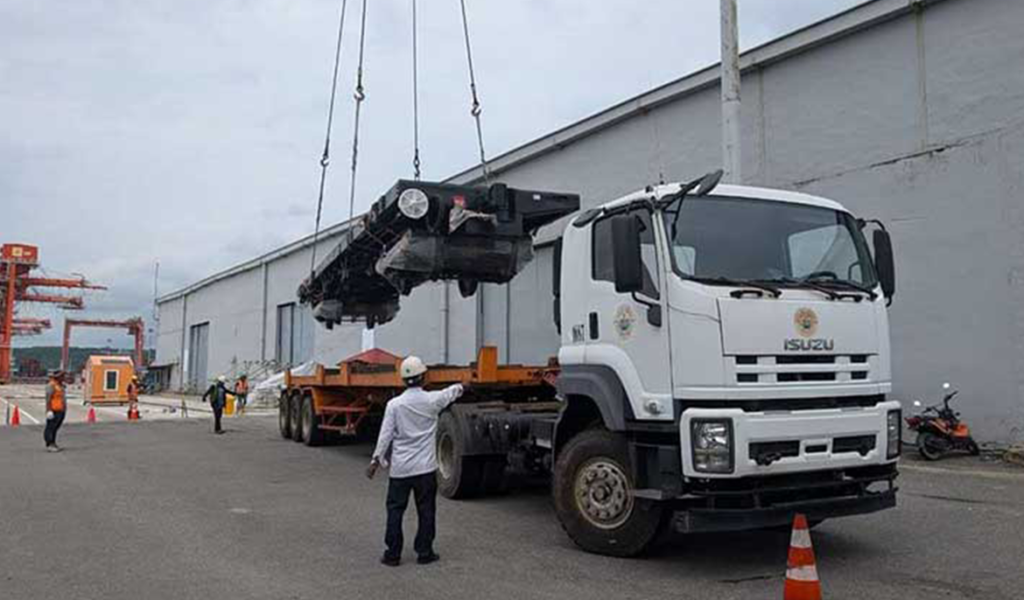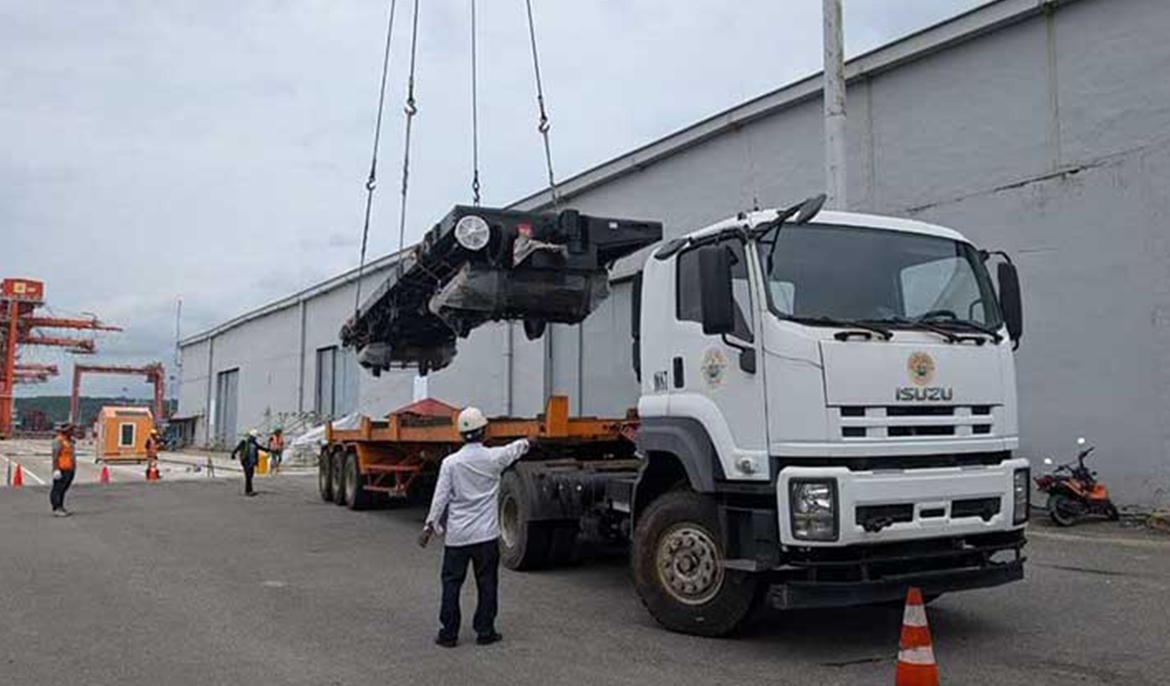Royal Railway Cambodia (RRC), a subsidiary of Royal Group, imported 25 new flat rail wagons from Malaysia to enhance its freight service capabilities, according to the company, yesterday.
“The shipment arrived on July 28, marking a significant step forward in Royal Railway’s commitment to providing efficient and reliable freight transport across Cambodia,” Royal Railway said in a statement.
The new acquisition is part of Royal Group Chairman Kith Meng’s investment plan to increase the fleet by 200 wagons, demonstrating a significant commitment to the development of Cambodia’s rail infrastructure, said the release.
With this strategic expansion, it continued, Royal Railway aims to enhance its capacity and efficiency further, solidifying its position as a key player in the region’s transport sector.
“Royal Railway extends its gratitude to its partners and stakeholders for their continued support and cooperation. The company remains committed to delivering exceptional service and contributing to the development of Cambodia’s infrastructure and economy,” the company said.
Royal Railway is Cambodia’s premier rail transport provider, offering passenger and freight services across the country, it said, adding that the company commenced operations in 2010 after it completed the rehabilitation of the railway network and is dedicated to safety, reliability and customer satisfaction.
While responding to the Royal Railway’s move, Tan Khee Meng, President of the Malaysian Business Chamber in Cambodia (MBCC), told Khmer Times that the development underscores the growing partnership between Cambodia and Malaysia and the potential for further collaboration in the infrastructure sector.
“MBCC warmly welcomes the news of the Royal Railway importing 25 train wagons from Malaysia to enhance Cambodia’s freight train services. This development underscores the growing partnership between our two nations and the potential for further collaboration in the infrastructure sector,” Tan said.
Malaysia, he noted, takes immense pride in having one of the most comprehensive and advanced infrastructure networks in Southeast Asia. “Our expressways and commuter trains have significantly contributed to the nation’s economic growth and improved the quality of life for our citizens. We believe that Cambodia can greatly benefit from similar investments in infrastructure development,” Tan said.
“As Cambodia continues to make strides in its economic growth and regional integration, we see tremendous opportunities for Malaysian investors and businesses to contribute to this progress,” he added.
Moreover, such collaborations will not only benefit Cambodia and Malaysia but also contribute to the realization of the ASEAN connectivity vision. “By enhancing infrastructure linkages between our countries, we can facilitate greater trade, investment, and people-to-people exchanges within the region,” Tan noted.
It may be recalled that earlier in April this year, Royal Railway imported 11 Diesel Multiple Units (DMU) from Japan to enhance the railway services in Cambodia.
The Japanese DMUs will be put into operation in the Phnom Penh-Sihanoukville and Phnom Penh-Poipet sectors to boost services after the completion of trials and tests.
DMU is a self-propelled train with multiple diesel engines within the same unit. It consists of several carriages, each with its own engine, allowing for independent and flexible operation.
The Kingdom has two rail lines that started during the French colonial era. The tracks were repaired and renovated before resuming service for rail freight in 2010.
The Northern Railway has a length of 386 kilometres from Phnom Penh to Poipet and was built between 1929 and 1942. The Southern Railroad was built between 1960 and 1969 and has a length of 264 kilometres.



